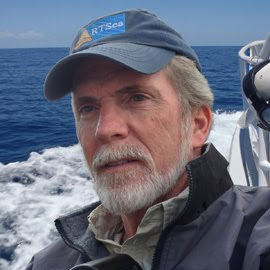 Alibaba.com is a leading online source for small to medium-size Chinese businesses to get their goods to market. The parent company, the Alibaba group, owns several online properties to
Alibaba.com is a leading online source for small to medium-size Chinese businesses to get their goods to market. The parent company, the Alibaba group, owns several online properties to  assist Asian businesses, from retail to wholesale. It is also a company that felt the wrath of conservationists because the web site was a source for the sale of shark fins and other shark-related products.
assist Asian businesses, from retail to wholesale. It is also a company that felt the wrath of conservationists because the web site was a source for the sale of shark fins and other shark-related products.Recently, Alibaba.com commendably removed all shark fin products from its web site. Did the company cave-in to outside pressure from shark advocates? Well, I'm sure it played a role. And they still have a long way to go, as the site continues to offer other shark-related products such as oil and cartilage. According to an interview with Alibaba Group founder and CEO, Jack Ma, he was not aware that shark fins were being harvested directly from the sea.
 "Well, honestly speaking, before [the shark fin issue] I had never thought about the environment. That was the first environmental issue I dealt with. In the beginning, I did not understand those anti-shark fin guys because I had never given much thought to where shark fin came from and thought it was cultivated."
"Well, honestly speaking, before [the shark fin issue] I had never thought about the environment. That was the first environmental issue I dealt with. In the beginning, I did not understand those anti-shark fin guys because I had never given much thought to where shark fin came from and thought it was cultivated."This lack of awareness is also illustrated in the reactions of Asian people who see footage of shark or dolphin kills (The Cove) - amazing as it may seem, it's all new to them.
But the change is also indicative of a subtle groundswell that is brewing in China. For the past decade, China has been growing as a economic powerhouse. Whatever long-term effects it will have on their communist system of government remains to be seen, but there definitely is a growing level of wealth, a growing middle-class, and the people would like that to continue. And while that new-found wealth has greatly increased the demand for shark fin soup in certain segments of the Chinese populace, what is also slowly beginning to grow in China is a greater appreciation as to their environmental responsibility. It's not perfect by any means; there are still plenty of industrialists who would prefer to utilize their natural resources at the expense of the environment (Western civilization did it. Why can't we?). But the seeds are there and they may just take root.
 China is beginning to realize that to be a long-term industrial and economic leader, it must consider the environment. In fact, if it can solve its own environmental problems technologically; if it can establish itself as a leader in alternative energy implementation, then its position as a global superpower will undoubtedly be secured. But it will be a struggle: new clean factories and reduced CO2 emissions are one thing; a long standing cultural history in utilizing endangered species is another.
China is beginning to realize that to be a long-term industrial and economic leader, it must consider the environment. In fact, if it can solve its own environmental problems technologically; if it can establish itself as a leader in alternative energy implementation, then its position as a global superpower will undoubtedly be secured. But it will be a struggle: new clean factories and reduced CO2 emissions are one thing; a long standing cultural history in utilizing endangered species is another.The world must watch China. They could very well be at the commencement of a long-term strategy that realizes the benefits of development which does not tear down the environment or deplete its own resources. They could be embracing what other industrial developed nations are so slow to adopt. And it could benefit developing nations while sending shivers of paranoia through the halls of powerful nations who have prided themselves as masters of the world for the past several decades.
Click here to read the entire interview with Jack Ma. Mr. Ma has been working with The Nature Conservancy and has some very interesting and heartening things to say about his environmental approach to his business and what is beginning to happen in China. If it's real and it continues, the world could have a new superpower to look up to and emulate.
"What we want to do is to raise awareness among as many people as possible on the seriousness of the environmental situation in China, and let them know that everybody can contribute something to make things better. The better we educate people on the issues, the more will happen. With more and more young people joining the government, they will bring an understanding on the importance of the problem and take action. So it is about influencing a whole system.
I think we are in the process to building it up right now. We cannot expect change overnight. We need to create the change over time, say 5 or 10 years. That's called a long-term strategy, and is necessary for sustainable action and results."

















No comments:
Post a Comment